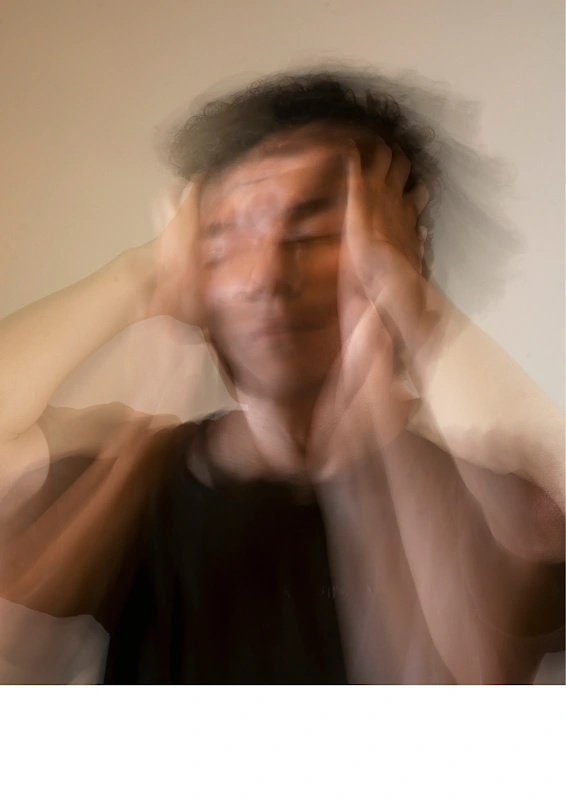5 Tips On How To Cope With Anxiety and Panic Attacks

5 Tips On How To Cope With Anxiety and Panic Attacks
The first time I had a panic attack was when I was about eight years old. It was in the catechism class. This new teacher gave us gory details of hell that I fell to the floor shaking, screaming, and clutching at my ears. The thought of hell was too much for me to bear. Years later, I found out that what I experienced was a panic attack.
Anxiety and panic attacks can occur without warning and can be overwhelming. Almost everyone experiences this from time to time. In moderation, they are natural responses that increase your alertness.
However, excessive anxiety and panic attacks can negatively impact your daily life. They may cause stress and limit your activities.
In this blog post, we will discuss the concepts of anxiety and panic attacks and provide five tips on how to cope with them.
What is Anxiety?

Anxiety is a common emotional response to stress, perceived threats, or uncertainty. It involves feelings of dread, tension, and uneasiness. Often, it causes physical symptoms like shaking and sweating.
Various situations can trigger anxiety. These include family problems, financial crises, relationship issues, and fear.
When facing stressful situations, certain hormones are released into your bloodstream. These hormones, like adrenaline and cortisol, increase alertness.
However, if you experience a choking sensation and feel overwhelmed, you might be having a panic attack.
What is a Panic Attack?

A panic attack is a sudden and intense feeling of anxiety. It can occur unexpectedly, often without a clear reason, and can be frightening.
The symptoms include:
Racing and irregular heartbeat
Feeling choked
Sweating
Nausea
Trembling
Shortness of breath
Dry mouth
Confusion
Ringing in the ears, and more.
These symptoms typically last between 5 to 30 minutes for most people.
Frequent anxiety and panic attacks can be restricting and have a devastating impact on one's life.
5 tips on how to cope with anxiety and Panic attack
Coping with anxiety and panic attacks can be challenging, but with these five easy tips, you may be empowered to manage and overcome them:
Practice deep breathing exercises:
When feeling anxious, take a moment to close your eyes and take slow, deep breaths. Continue this until you feel calm.
This simple exercise can help calm your racing heart and regulate your rapid, shallow breathing, which are common symptoms of anxiety and panic attacks.
Use Grounding Techniques:
Anxiety can stem from worrying about the future or feeling out of place.
The grounding technique involves focusing on tangible objects or sensations in the present.
When feeling anxious or experiencing a panic attack, pause and touch a familiar object, or take in the surrounding smells.
This helps connect your mind to the present, reducing anxiety caused by future worries or uncertain situations.
Thinking about the future or things you can't control, like what happens after death, can heighten anxiety.
So, stay present, calm your mind, and focus on the here and now.
Engage in physical activity:
Researchers have found that regular physical activities improve mood through the release of a certain hormone called endorphins.
These endorphins help reduce anxiety and panic attacks.
Seek support:
Experiencing anxiety and panic attacks can be challenging and shouldn't be faced alone.
Reach out to friends, family, or a mental health professional for empathy, understanding, and guidance.
Experts suggest that support from others can help you cope with anxiety and panic attacks.
Practice mindfulness techniques:
Managing anxiety and panic attacks is essential. This can be achieved by managing stress and increasing feelings of calm.
Mindfulness techniques are meditation exercises. They involve focusing on breathing and staying present without judgment.
Regular practice of mindfulness exercises helps reduce stress and increase feelings of calm. This can make managing anxiety and preventing panic attacks easier.
Managing anxiety and panic attacks effectively is not rocket science. involves implementing grounding techniques, engaging in physical activity, seeking support, and practicing mindfulness exercises.
Focusing on stress reduction and enhancing calmness can help you cope with anxiety and improve your overall well-being.
Like this project
Posted Mar 26, 2025
Feeling overwhelmed? You're not alone. This guide shares five easy tips to help you stay calm and take control when anxiety or panic strikes.







